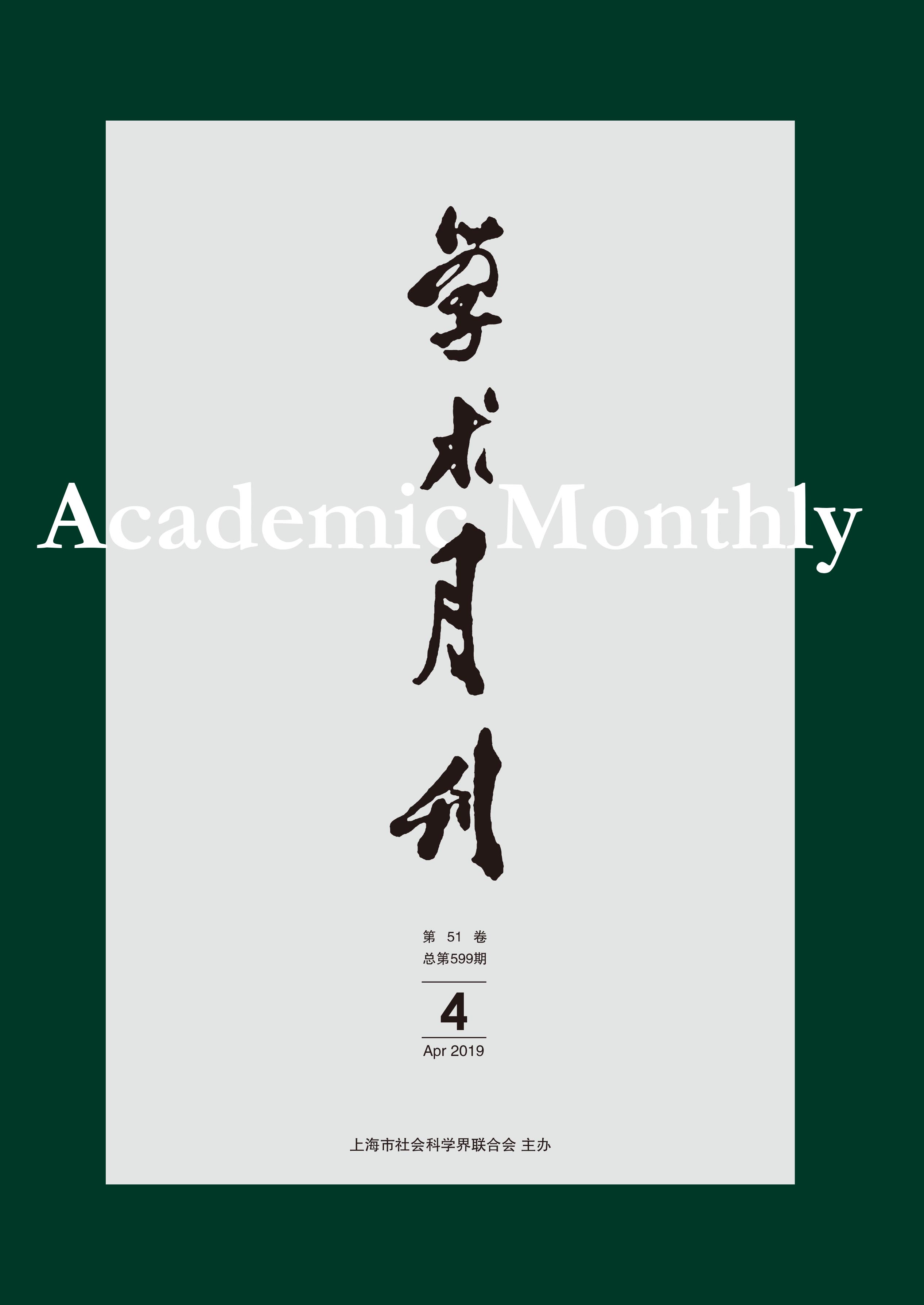Citation:
Chengyan ZHU and Jian’guo CHU. The Coordination between Central and Local Governments and the Transition of the Vertical Political System in Contemporary China[J]. Academic Monthly, 2019, 51(4): 73-83.

The Coordination between Central and Local Governments and the Transition of the Vertical Political System in Contemporary China
-
Abstract
To amend the failures of extant theory of institutional change in explaining China’s political institutional change, the general theory of institutional change synthesizes the perspectives from harmonious and conflict schools. Based on the core mechanism of social evolution paradigm, the variation-selection-heredity, it divides the process of institutional change into five stages, including concept generation, political mobilization, power struggle, rule-making and institutional stability. This theoretical framework contributes to better grasp the intrinsic motivation and dynamic process of institutional change, presenting stronger theoretical advantages than the new institutionalism theory of institutional change. However, it neglects the role of coordination between powers in promoting institutional change, and fails to explain the dynamic evolution process of China’s vertical political system after the reform and opening-up sufficiently. The practical experience of contemporary China’s vertical political system changes shows that the coordination crisis induced by the deviation of the central and local governments in objectives, interests and organizations also promotes the evolution of the system. As a result, the institutional changes could take not only the changes of the vertical power and responsibility distribution system into consideration, but also the adjustment of the coordination mechanism of the vertical power relations in a more micro-approach, which is also the major contribution of this research.
-

-
References
-
Access
-
-
[1]
. Conflicting or Reconciling: An Analysis of the Relationship between Deliberative Democracy and Political RepresentationDuan Demin. Academic Monthly,
2018, 50(03): 115-124.
-
[2]
Sheng LI
. The Civil-Military Relation in the American Constitutional System: Traditions and Transitions. Academic Monthly,
2018, 50(12): 86-96.
-
[3]
,
. . Academic Monthly,
2018, 50(01): 63-77.
-
[4]
Xiaohong YU
, Xiang WANG
. People’s Assessors in China’s Political-legal Tradition: Institutional Changes and Developmental Logic. Academic Monthly,
2021, 53(7): 105-120.
-
[5]
Ping LI
, Qianxiang DU
. Changes of Economic System in New China: Theoretical Logicand Practical Exploration. Academic Monthly,
2019, 51(8): 37-47.
-
[6]
,
. . Academic Monthly,
2017, 49(05): 59-73.
-
[7]
,
. . Academic Monthly,
2017, 49(02): 96-105.
-
[8]
Shiye TIAN
, Ping LI
. Changes of Rural Land Property Rights System in China from the Perspective of Development. Academic Monthly,
2021, 53(12): 74-84.
-
[9]
Daogeng ZHANG
. Logic of Economic Institutional Change and Reform of China’s Economic System. Academic Monthly,
2022, 54(1): 58-67.
-
[10]
Liang GUO
. The Relationship between Family and State: An Important Local Perspective to Understand the Changes of Social Governance Since Modern China. Academic Monthly,
2021, 53(5): 96-105.
-
[11]
Yi ZHAI
. The Transition of Relationship and Value between the Administrative Subject as Franchisor and the Object of Franchisee. Academic Monthly,
2019, 51(6): 78-93.
-
[12]
Jianxing YU
, Yindong LIU
. Vertical Governance in the Changes of Supervision System: The Second Round Central Environmental Protection Supervision in Focus. Academic Monthly,
2021, 53(11): 77-84.
-
[13]
Jianxing YU
, Yindong LIU
. The Supervision System in Vertical Inter-Governmental Relationship: Taking Central Environmental Protection Supervision as a Case. Academic Monthly,
2020, 52(7): 69-80.
-
[14]
Yongle ZHANG
. The Burden of “Concert of Great Powers” and the Remaking of Modern China. Academic Monthly,
2023, 55(3): 108-125.
-
[15]
Guoqiang TIAN
. Policy Coordination and Reform Response for China’s High-quality Economic Development. Academic Monthly,
2019, 51(5): 32-38.
-
[16]
Yongle ZHANG
. Concert of Powers and the Grand Compromise: The Network of Treaties, the Banking Consortium and the Path of the 1911 Revolution. Academic Monthly,
2018, 50(10): 91-109.
-
[17]
. . Academic Monthly,
2017, 49(02): 25-33.
-
[18]
,
. . Academic Monthly,
2017, 49(12): 90-102.
-
[19]
Wei MAO
. Economic Performance of Institutional Change. Academic Monthly,
2020, 52(5): 62-71.
-
[20]
Qi CHEN
. The Institutional Pendulum and Its Evolutionary Mechanism. Academic Monthly,
2023, 55(1): 110-126.
-
-



 沪公网安备 31010102003103号
沪公网安备 31010102003103号 DownLoad:
DownLoad: